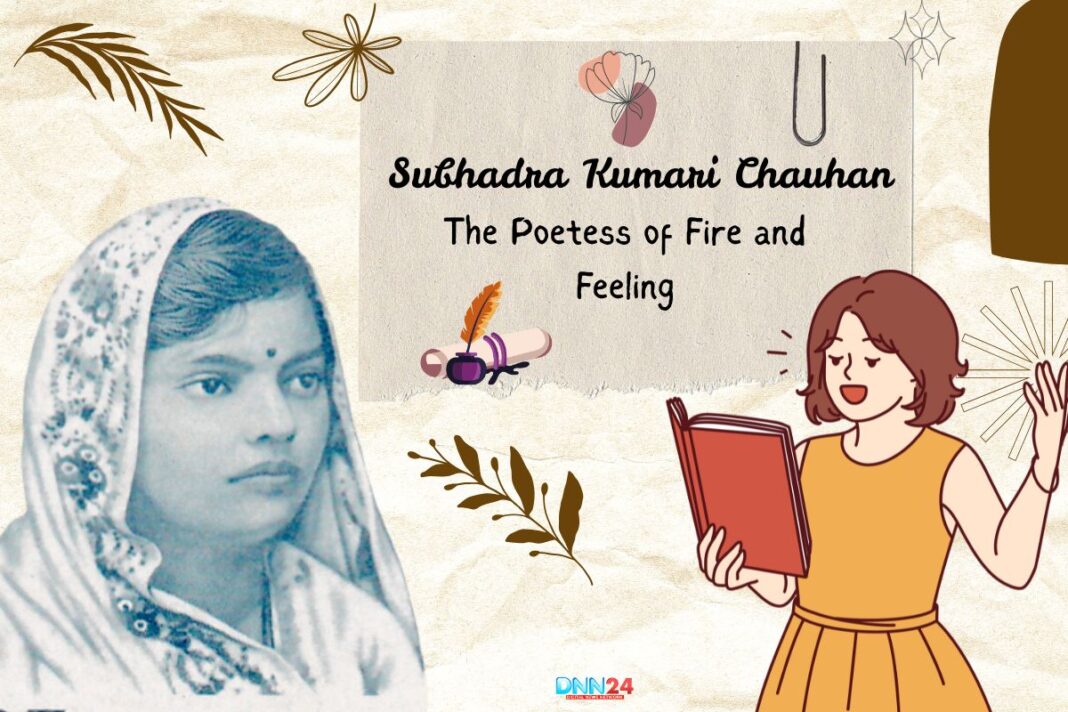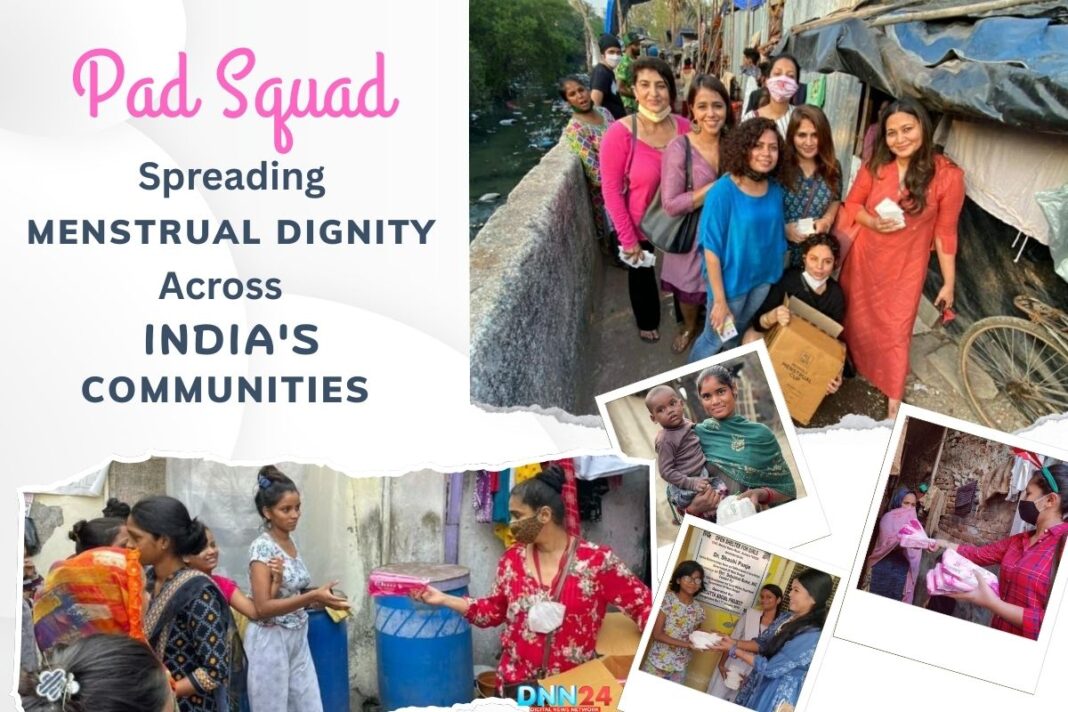Subhadra Kumari Chauhan was born on 16 August 1904 in the little hamlet of Nihalpur, near Allahabad, in a traditional Rajput family. Her early existence was linked with the threads of customs—untouchability, purdah, and harsh discipline governed her household. But even as a tiny child, Subhadra’s heart raced at a different pace. She questioned her mother about caste inequality and regularly spoke up for what she believed was right, even if it meant going against her family.
Her father, Thakur Ram Nath Singh, was a severe man. Still, her older brother, Raj Bahadur Singh, became her first supporter, advocating for her education at a period when females were seldom sent to school. At Crosthwaite Girls’ School in Allahabad, Subhadra’s lyrical spark was noted by everybody. She met a companion in Mahadevi Verma, another future legend, and together, they would write, dream, and push each other to aim for the sky.
Pratham Darshan
Subhadra Kumari Chauhan
Pehli baar jab dekha tha,
Man mein uthi thi lehar,
Aankhon mein basi chhavi,
Hriday mein macha tha kahar
She was a youngster who liked the rain, the meadows, and the freedom of the wide sky. Yet she also observed the agony of women around her, the quiet of her mother, and the laws that chained her sisters. These early memories would form the core of her poetry—simple, passionate, and honest.
Marriage and New Beginnings: Love in the Time of Revolution
At age 15, Subhadra was married to Thakur Lakshman Singh Chauhan of Khandwa, a man who would become her companion in every sense—life, love, and revolution. Their marriage was not merely a union of two hearts but also of two brains resolved to change. Soon after, the couple relocated to Jabalpur, where the winds of the independence movement were starting to blow. Here, Subhadra’s life took a new turn. She quit her studies at the Theosophical School in Varanasi to join her husband and the cause of the country.
Jeevan-Phool
Subhadra Kumari Chauhan
Jeevan ke phool khile,
Sapno ke rang mile,
Har kathinai mein bhi,
Aasha ke swar mile
Their love was not merely romantic but revolutionary. They attended the wedding of their domestic servant, crossing caste boundaries and suffering the fury of their family. Subhadra believed in equality, and her deeds spoke louder than words. Even as a young newlywed, she was brave to question the old traditions, making her house a sanctuary for fresh ideas and big goals.
The Poetess and the Patriot: Fire in Every Word
Subhadra Kumari Chauhan’s poetry is drenched in the hues of patriotism and the grief of her people. She wrote in the “Veer Ras” a tone of fearlessness, yet her sentences were always clear, straightforward, and full of heart. Her most famous poem, “Jhansi ki Rani,” became a hymn of bravery for every Indian youngster.
Her poetry was not simply about warriors and queens—it was about everyday women, mothers, and children, about hope and pain, about the goal of a free India. Subhadra composed 88 poems and 46 short tales, many of them for children, filled with the purity and delight she never lost.
Paani aur Dhoop
Subhadra Kumari Chauhan
Pani ki boonden, dhoop ki kiranen,
Jeevan mein laati hain rang,
Sukh-dukh ke sangam mein,
Banti hain jeevan ki umang
Her writing was her weapon, and with every poem, she battled against the British, social injustice, and the silence placed upon women.
Unheard Tales: The Woman Behind the Legend
Behind the poet and the freedom fighter was a lady with profound emotions and unknown memories. Subhadra’s life was full of little, unsung kissey—moments that displayed her genuine nature. Once, while she was pregnant and already a mother, she led the Jhanda Satyagraha in Jabalpur, holding the national flag with pride and defiance. She was the first woman Satyagrahi to be arrested in Nagpur, and even in prison, she kept her spirits up, constructing pillows out of the garlands donated to her by admirers, joking that they reminded her of her bridal bed.
Khilaunewala
Subhadra Kumari Chauhan
Chhote-chhote haathon mein,
Kitne sundar khilaune,
Khilaunewala laaya hai,
Bachchon ke sapnon ke kone
She was not simply a leader but a mother who brought her small kid to prison, refusing to allow motherhood to stop her from serving her nation. Her bravery was subtle but unshakeable, her grin a shield against every sorrow.
Romance and Revolution: Love Letters in the Time of Struggle
Subhadra and Lakshman Singh’s love was a calm spark amid the tempest of revolution. Their letters to one other were filled with poetry, hope, and desire. When Lakshman was jailed during the Quit India Movement, Subhadra was left alone with her children, yet she never let her spirit shatter. She would compose poetry for him, for her children, and for the women of India, converting her loneliness into strength.
Upeksha
Subhadra Kumari Chauhan
Upeksha ke kshanon mein,
Man bahut rota hai,
Maun ke saagar mein,
Swayam ko khota hai.
Their love was not simply for one other but for the goal of a free, fair India. Subhadra’s poetry became her method of keeping connected to her husband, her children, and her nation, even in the darkest moments.
Legacy of Light: The Poetess Lives On
Subhadra Kumari Chauhan lost away in a fatal vehicle accident on 15 February 1948, at the young age of 43. But her legacy lives on in her poetry, in the hearts of children, and in the spirit of every woman who dares to dream. She was elected twice to the Bihar Legislative Assembly, a remarkable feat for a woman of her day. Her existence was a bridge between the old and the new, between tradition and change.
Chinta
Subhadra Kumari Chauhan
Chinta ki rekhaayein,
Maathay par chha jaati,
Man ke aangan mein,
Andhiyaara kar jaati.
Her poem is still repeated in classrooms; her tale is relayed to inspire new generations. She proved that even in the most terrible circumstances, love, bravery, and poetry can transform the world.
The Magic of Her Words: Poetry That Touches the Soul
Subhadra’s poems are simple, but they touch the darkest recesses of the heart. She wrote about everything—freedom, love, parenthood, and the anguish of loss. Her words are simple to grasp, yet their effect is enduring.
Yeh Kadamb ka Ped
Subhadra Kumari Chauhan
Yeh Kadamb ka ped agar maa hota Yamuna teere,
Main bhi usmein baith Kanhaiya banta dheere-dheere.
Morpankh sir par dhar, baansuri bajaata,
Maa tu ban jaati Yashoda, main Kanhaiya tera.
Her children’s poetry is full of fun and innocence, while her patriotic rhymes flare with the fire of revolution. She believed in the power of words to heal, connect, and inspire.
Unheard Stories of Subhadra Kumari Chauhan’s Bravery That Inspired Her Poetry
Jhansi ki Rani
Subhadra Kumari Chauhan
Singhasan hil uthe, rajvanshon ne bhrikuti taani thi,
Boodhe Bharat mein aayi phir se nayi jawaani thi.
Gumi hui azaadi ki keemat sab ne jaani thi,
Bundele harbolon ke munh, humne suni kahaani thi.
Subhadra Kumari Chauhan’s poetry is famous for its fire and simplicity, but behind her verses lie real stories of courage that are often left out of textbooks. Her life was not just about writing—she lived her poems, turning every challenge into a stanza of resistance and hope.
The First Woman Satyagrahi of Nagpur
One of the most powerful, lesser-known stories is how Subhadra became the first woman Satyagrahi to be arrested during the Nagpur Satyagraha. She was not just a poet sitting at her desk; she marched on the streets, carrying the national flag, even when she was a young mother. She took her small child with her to jail, refusing to let her duties as a mother stop her from fighting for the country’s freedom. In jail, she turned garlands given by supporters into pillows, joking with her fellow inmates and keeping their spirits high.
Raahi
Subhadra Kumari Chauhan
Chalna hi jeevan ki kahani,
Rukna maut ki nishani.
Sapno ke sang chalna,
Sach ki raah dikhani
Breaking Social Barriers at Home
Subhadra’s bravery was not just on the battlefield of freedom; it was in her home, too. She and her husband attended the wedding of their domestic worker, breaking caste boundaries that were rigid in her time. This act brought anger from her own family, but Subhadra stood firm, showing that true bravery starts by challenging injustice at home.
Sangharsh
Subhadra Kumari Chauhan
Sangharshon ki raah mein,
Har kadam par kaante.
Jeet unhi ki hoti,
Jo na haar maante.
Poetry as Protest and Personal Sacrifice
Her poetry was not just about others’ bravery; it was a reflection of her struggles against patriarchy and colonial rule. She wrote with urgency, her revolutionary zeal deeply personal and embodied. Her iconic poem “Jhansi ki Rani” is not just about Lakshmibai—it is also about Subhadra herself and every woman who refuses to bow down. Her verses became war cries for Indian girls, teaching them to be uncompromising and fearless.
Nari
Subhadra Kumari Chauhan
Nari shakti ki misaal,
Har yug mein rahi.
Sangharshon se ladkar,
Nayi raah chali.
Everyday Acts of Defiance
Subhadra’s life was filled with small, everyday acts of courage—standing up to her family’s conservative rules, questioning untouchability as a child, and demanding education for herself and other girls. These moments, though not always recorded in history books, inspired her to write poems that celebrated the stubborn, insistent nature of women.
Azaadi ka sapna
Subhadra Kumari Chauhan
Azaadi ki aas mein,
Har dil ne tadpna seekha.
Balidaanon ki raah mein,
Har aansu ne behna seekha.
Conclusion: Subhadra Kumari Chauhan—A Heart That Still Beats
Subhadra Kumari Chauhan was more than a poet, more than a freedom fighter—she was the pulse of a transforming India. Her life was a combination of passion, revolution, and endurance. She showed us that poetry is not only about words but about living with bravery, loving without fear, and dreaming with wide eyes.
Subhadrakumari Chauhan
Subhadra Kumari Chauhan
Swatantrata ki pukar,
Har dil mein jaga di.
Kavita ke swar mein,
Krantii ki dhaara baha di.
Her narrative is not simply history—it is a song, a lyric, a promise. As long as her words are read and her poetry spoken, Subhadra Kumari Chauhan will be alive in the spirit of India.
Also Read: Amrita Pritam: The Soulful Voice of Love, Pain, and Rebellion
You can connect with DNN24 on Facebook, Twitter, and Instagram and subscribe to our YouTube channel.



